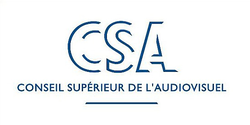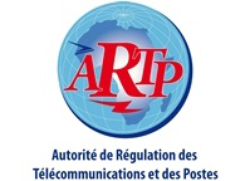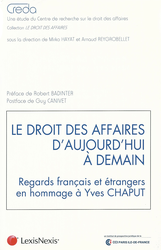July 23, 2016
Breaking news

On 20 July 2016, the Conseil Supérieur de l'Audiovisuel (CSA- French "Independant Authority to Protect Audiovisual Communications Freedom") issued a press release in which it directly addresses to its Turkish counterpart.
Read the 20 July 2016 press release from the CSA.
The press release is short. Here is what it says: "Le Conseil supérieur de l'audiovisuel exprime sa vive inquiétude à la suite de la décision du Conseil suprême de la radio et de la télévision (RTÜK), le régulateur des médias en Turquie, de retirer leurs droits d'émission à de nombreuses radios et télévisions. Le Conseil appelle son partenaire de longue date au sein de la Plateforme européenne des instances de régulation (EPRA) et du Réseau des institutions de régulation méditerranéennes (RIRM) à ne pas mettre en cause la liberté de communication et le pluralisme des médias, garanties fondamentales d'une société démocratique." (courtesy translation: "The Conseil supérieur de l'audiovisual expresses its deep concerns following the decision of the Supreme Council for Radio and Television (RTÜK), the Turkish Media Regulator, to withdraw the broadcasting rights of numerous radios and televisions. The Conseil calls upon its long-time partner within the European Platform of Regulatory Authorities (EPRA) and the Mediterranean Regulation Authorities Network (RIRM) not to jeopardize the freedom of communication and media pluralism, which are fundamental guarantees in a democratic society").
The press release is entitled "Le CSA s'inquiète du retrait par le régulateur turc des droits d'émission de radios et de télévision" (courtesy translation: "The CSA worries about the decision of the Turkish Regulator to withdraw broadcasting rights to radios and televisions").
____
Isn't this surprising?
One would understand that the members of a Regulatory Authority, just as many people, would worry about what has been happening lately in Turkey. One can also share the view that these events might cause them to fear for the sake of public liberties and democracy in the country.
Should a Regulatory Authority express its "worry" though?
Shouldn't it be the Government's role instead, within the framework of its 'diplomatic relations' with the state and with the use of an appropriate vocabulary, to express any 'worry'?
First of all, this is a salient example of the ambiguity of the Audiovisual Regulator. Indeed, while it itself insists on the fact that it acts as an economic regulator of a sector whose development and innovation falls under its watch and monitoring (which namely justifies the fact that he reviews candidacies to the presidency of public televisions channels), the Conseil Supérieur de l'Audiovisuel had initially been created to preserve public liberties.
As such, people who still embrace the distinction that was previously assumed between public liberties regulation and economic regulation still consider the CSA - along with the CNIL - as the prototype of the former type of regulatory body.
Here the CSA expresses its "deep concern" and sends a request not to "jeopardize liberties", which is the polite version of an injunction, to a foreign regulatory authority upon which it has no authority whatsoever.
One can understand that the Regulator develops soft law about operators on which he has actual authority. But what about here? Shouldn't the adage Nemo plus juris apply?
How is the Regulator competent to issue 'releases' in which he formulates desiderata towards a foreign body whose behavior is unappealing to him? Shouldn't the Quai d'Orsay (French Ministry for Foreign Affairs) be in charge?
The Regulator took a political stance here, while it is known that a Regulatory Authority can only be legitimate when it stands as a technical authority; emphasizing on the political features of its job actually jeopardizes this legitimacy, all the more when international politics are involved (which is the case here).
However, the Regulator does preempt criticism in its press release:
It starts indeed by stating that it only expresses this sort of 'feeling' because of the old ties that exists between the French and the Turkish Regulators: it essentially considers that friends can be true to one another, express a few criticism and expect changes. Friendship in the digital media and in politics would allow for many things.
Besides, the CSA recalls the solidarity that prevails between the two regulators. Because they are "long-time partner within the European Platform of Regulatory Authorities (EPRA) and the Mediterranean Regulation Authorities Network (RIRM)", the French Regulator is enabled to express the Turkish Regulators its view on how it is jeopardizing democracy and how it should consequently stop.
Maybe the many ties that exists between the Regulators now enable them to give more or less stringent advice to one another, whereas diplomatic embassies now play an increasing economic role: how blur do the lines get!
July 15, 2016
Breaking news

In Senegal, the Autorité de régulation des télécommunications et des postes (ARTP ; English translation: Telecommunications and Posts Regulatory Authority) has, just like all regulators, inherent powers to impose sanctions. In general, the important thing is not only to exercise this sanctioning power but to exercise it in a way that reinforces the authority of the Regulator. In this perspective, the new Sonatel sanction decision is important.
As a sanctions always carry a heavier weight when people are made aware of it, the Director General of the Artp issued a press release, that has been flagged as particularly important, and held a press conference (in French) on a particularly serious sanction imposed following what the Regulator considers as the non-fulfilment of obligations stemming from formal notices (which, by the way, the telecom operator challenges on the merits).
On 21 November 2014 indeed, the Sonatel was given a formal notice from the Artp to respect consumer rights. As the code of telecommunications provides since its modification in 2014, operators shall "prendre les mesures appropriées de dimensionnement de leurs réseaux de nature à garantir à leurs clients un accès ininterrompu à leur service client commercial ou technique en respectant un taux d’efficacité minimal" (translation: "take appropriate measures to size their networks in a way that provides their consumers with an uninterrupted access to their customer service (sales service and technical support) which would respect a minimum efficiency rate") set by the Regulator itself- as to, namely, ensure that the right of consumers to be informed is satisfied (as regards billing mechanisms) and that their calls to consumer services remain free of charge. As the Regulator estimated that the Sonatel was not complying with such regulations, it conducted a formal investigation and notified a statement of objections to the operator, before sending on 28 January 2015 a second formal notice for the same reasons.
On 14 July 2016, the Regulator imposed a sanction on Sonatel since the it still estimated that the operator's behavior still was not leading to a compliant situation as regards the consumer right to be informed. The sanction, as stated in the Sonatel decision, is 13 billion 959 million FCfa (c. €20m), i.e., 15% of Sonatel's 2015 turnover. The sanction decision also provides that if the operator does not enforce it, an additional penalty of 10m FCfa (c. €15,000) per day will be charged.
The operator, however, challenges this sanction insofar as it estimates that its behavior is not to be blamed. To support its claim, Sonatel avails itself from the fact that upon reception of the first formal notice, it undertook a 'progressive compliance' with the requirements process as regards its network, then let the Regulator know about it, etc. It is henceforth to lodge an appeal.
The issue at stake, therefore, is to know whether the obligations on operators are obligations regarding the means used (that is to say, means obligations), or, conversely, if they are obligations to produce results (performance obligations). If they are means obligations, then the operator is right. However, considering the efficiency and effectivity principes that are closely linked with the teleological nature of Regulation, it is more likely that such obligations are performance obligations.
For instance, in France, the Commission Informatiques et Libertés (French Data Protection Authority- CNIL) considered on 1 March 2016!footnote-42 that the obligations on operators to have accurate and complete data are performance obligations and not mere means obligations.
Thus, there is probably more to follow with this Sonatel decision. The day the press release was issued, the operator stated it intended to lodge a hierarchical appeal before the Minister.
The next day, the Director General of the Artp stated in the press (in French) that under the Senegal law, the appeal could only be lodged before a jurisdiction, or before... the Regulatory Authority itself (request for reconsideration - in French : "recours gracieux").
This situation is thus a great reminder that new illustrations of the interplays between Regulation and Politics can always be found.
Feb. 5, 2014
Thesaurus : Doctrine

